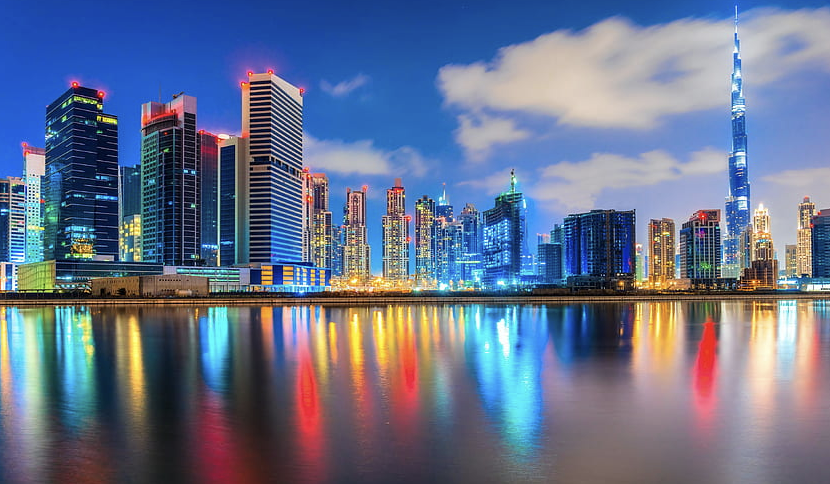When it comes to tax havens, Asia is home to some of the most attractive destinations for investors and entrepreneurs seeking to optimize their wealth legally.
Sure, traditional tax havens such as the Cayman Islands and Switzerland do still have their merits.
Yet places like Singapore, the UAE, and Hong Kong have transformed into global financial hubs, offering strategic benefits that go well beyond low taxes.
These jurisdictions combine low tax regimes with robust business environments, making them ideal if you want to not only safeguard assets but also thrive in a global economy.
Without any further ado, here’s our list of the three of the best tax havens in the world for 2025 and beyond!
Singapore: The Crown Jewel of Asia’s Tax Havens
Singapore has long been recognized as one of the most business-friendly countries in the world.
Known for its political stability and a strategic location next to one of the world’s busiest shipping lanes, Singapore is a magnet for global investors and high-net-worth individuals.
Why Choose Singapore?
Singapore’s tax system is one of its most significant draws. The country has no capital gains tax, no inheritance tax, and a corporate tax rate capped at 17%, which is highly competitive compared to many Western nations.
Personal income tax rates in Singapore are also progressive, maxing out at 22% for the highest earners.
For entrepreneurs, Singapore offers an unparalleled ecosystem. The city-state is a hub for both startups and multinationals, with a strong emphasis on tech and innovation. Its legal framework is conducive to business growth.

As Asia’s de-facto financial hub and one of the most business-friendly countries, Singapore’s low taxes and stability play a significant role in attracting investors and businesses.
Property investment is another area where Singapore shines. While real estate prices are high, that doesn’t necessarily make it a bad deal. Home values have continued to rise over the past few years.
Rental yields in Singapore are low, yet the market is stable and offers excellent long-term returns.
However, it’s worth noting that the government has implemented measures to prevent property speculation, which can impact foreign investors.
United Arab Emirates (UAE): A Rising Star in Tax Efficiency
The UAE, particularly Dubai and Abu Dhabi, has emerged as a leading tax-friendly destination in recent years.
Known for its luxurious lifestyle and futuristic infrastructure, the UAE is also a haven for those looking to minimize their tax burden while enjoying a high quality of life.
Tax Benefits in the UAE
One of the most appealing aspects of the UAE is its lack of personal income tax. There’s no tax on capital gains, dividends, or wealth, which makes it an ideal choice for individuals and businesses alike.
While a corporate tax rate of 9% was introduced back in 2023, it only applies to companies earning more than AED 375,000 annually, and certain free zones still offer a 0% corporate tax rate.
The UAE’s free zones are particularly attractive for foreign investors. These zones allow 100% foreign ownership of businesses, full repatriation of profits, and exemption from import and export duties.
This makes the UAE a strategic choice for entrepreneurs looking to expand their global business.
On top of that, the UAE’s strategic location between Asia, Europe, and Africa makes it a vital hub for trade and commerce. Its world-class airports and ports further enhance its appeal as a global business hub.
Hong Kong: The Gateway to China
Hong Kong has long been a favorite among global investors, thanks to its low taxes, efficient legal system, and proximity to Mainland China.
Despite recent political changes, Hong Kong remains a robust financial hub that offers numerous advantages for those looking to optimize their wealth.
The Tax Landscape in Hong Kong
Hong Kong’s tax system is straightforward and highly competitive. The city has no capital gains tax, no VAT, and no inheritance tax.
Corporate tax is set at a flat rate of 16.5%, and personal income tax is capped at 17%. This simplicity and efficiency make Hong Kong an attractive destination for businesses and individuals alike.

Hong Kong is still a favorite destination among investors, thanks to its proximity to Mainland China and the simple tax system.
Hong Kong’s role as a gateway to China cannot be overstated. The city serves as a bridge between the East and the West, offering unparalleled access to the Chinese market while maintaining its own unique legal and financial systems.
This dual advantage makes it an ideal base for companies looking to tap into Asia’s largest economy.
On top of that, Hong Kong’s banking sector is ranked among the world’s best, providing a stable and secure environment for wealth management.
Why These Asian Tax Havens Stand Out
What sets Singapore, the UAE, and Hong Kong apart from traditional tax havens is their ability to combine low taxes with robust economies and high-quality infrastructure.
These jurisdictions are not just about minimizing taxes; they offer opportunities for growth, innovation, and global connectivity.
For example, Singapore is a leader in tech and finance, making it an excellent choice for startups and tech entrepreneurs.
Meanwhile, UAE’s free zones provide unparalleled benefits for international trade while Hong Kong’s proximity to China gives unique advantages for those looking to expand all across Asia.
Indeed, the concept of a tax haven has evolved. It’s no longer about hiding wealth but about strategically optimizing taxes while enjoying a high quality of life.
The best tax havens in the world emphasize legal and transparent practices, distancing themselves from the outdated notion of tax havens as secretive and illicit.
Singapore, the UAE, and Hong Kong exemplify this modern approach, offering a blend of low taxes, business-friendly policies, and global connectivity.
To summarize: each of these top tax havens provide wealthy investors a method to achieve you and your family’s goals in the 21st century.
FAQs: World’s Best Tax Havens
Why is Singapore Considered the Best Tax Haven in Asia?
Singapore is highly attractive due to its stable political environment, transparent legal system, and strategic location. It offers no capital gains tax, no inheritance tax, and a corporate tax rate capped at 17%.
Personal income tax rates are progressive and max out at 22%. Singapore is also renowned for its tech-friendly ecosystem and robust financial infrastructure, making it a hub for startups and multinationals alike.
What Makes the UAE a Rising Star in Tax Efficiency?
The UAE, particularly Dubai and Abu Dhabi, is appealing due to its 0% personal income tax and no taxes on capital gains, dividends, or wealth.
While a 9% corporate tax was introduced in 2023, it only applies to businesses earning over AED 375,000 annually, with free zones still offering 0% corporate tax. The UAE also allows 100% foreign ownership in free zones and offers full profit repatriation, making it a strategic choice for global entrepreneurs.
How Does Hong Kong Maintain Its Status as a Leading Tax Haven?
Hong Kong is favored for its simple and competitive tax system, which includes no capital gains tax, no VAT, and no inheritance tax. Corporate tax is set at a flat rate of 16.5%, and personal income tax is capped at 17%.
Its proximity to Mainland China and its role as a gateway to the Chinese market make Hong Kong an excellent base for businesses looking to expand in Asia.
How Do These Tax Havens Differ From Traditional Ones Like the Cayman Islands?
Unlike traditional tax havens, Singapore, the UAE, and Hong Kong combine low taxes with robust economies, advanced infrastructure, and global connectivity.
These jurisdictions emphasize transparency and legal compliance, distancing themselves from the outdated perception of tax havens as secretive or illicit. They offer not just tax efficiency but also opportunities for innovation and growth.







